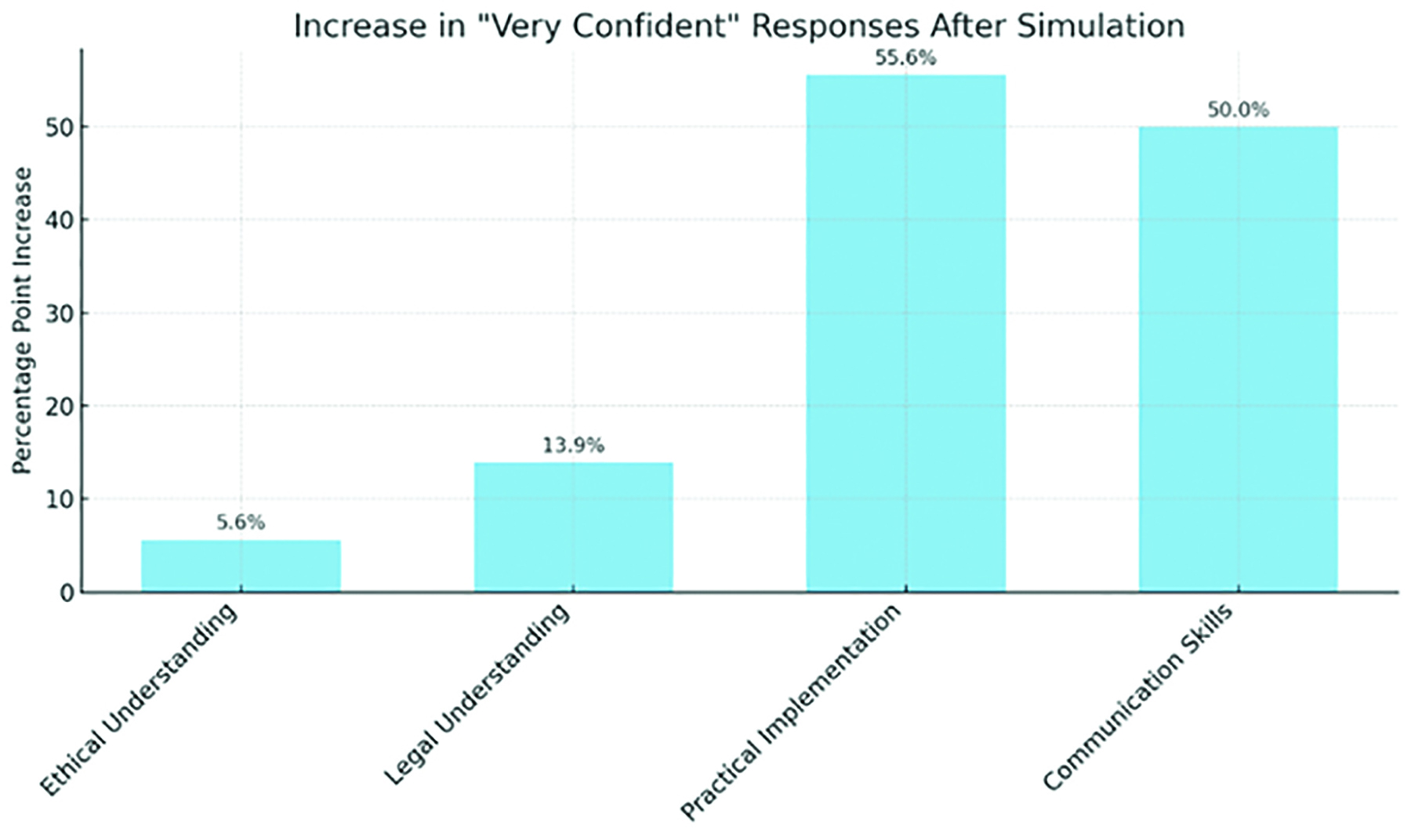
Elective withdrawal of non-invasive ventilation (NIV) in motor neurone disease (MND) is recognised as impactful on clinician’s mental health and well-being, presenting complex ethical, legal, and emotional challenges [1,2]. To reduce the emotional burden on staff, we designed and delivered an immersive simulation-based training day aimed at improving clinical confidence in managing elective NIV withdrawal and its holistic challenges.
Nine Palliative care registrars participated in a structured educational intervention combining classroom-based teaching with immersive simulation scenarios reflecting real-world cases. Participants self-rated their confidence in four key domains—ethical understanding, legal knowledge, practical implementation, and communication—at three intervals: before the session, after the classroom component, and post-simulation.
The simulation occurred in a high-fidelity immersive environment reflecting a domiciliary setting enhanced by high quality acting to support challenging conversations. A manikin was used which can display eye blinking, carotid pulse, chest wall movement, radial pulse, sub cutaneous administration of medicines.
Baseline confidence of “Not confident at all” was lowest in practical implementation (57%) and communication (14.3%). After the classroom session, “very confident” responses rose to 83.3% in ethical and 75% in legal domains, while practical and communication confidence saw modest increases. Following simulation, confidence in ethical, legal, and practical domains rose to 88.9%. Communication skills confidence rose to 66.7%, a 52.4 percentage point increase from baseline (Figure 1).
This blended educational approach—combining theoretical teaching with immersive simulation—significantly enhanced participant confidence in managing the elective withdrawal of NIV in MND than just classroom-based teaching alone. Simulation was particularly effective in reinforcing practical and communication skills, underlining its value in preparing clinicians for ethically complex, emotionally charged scenarios. It is hoped that this experience will positively impact clinician’s mental health and well-being for future ‘real life’ experiences.
As the submitting author, I can confirm that all relevant ethical standards of research and dissemination have been met. Additionally, I can confirm that the necessary ethical approval has been obtained, where applicable
1. Cox G, Davis C, Woodley J. A qualitative exploratory study into medical, nursing and allied health professional experiences of elective withdrawal of non-invasive ventilation in a motor neurone disease cohort. J Eval Clin Pract. 2024 Oct 18.
2. Association for Palliative Medicine (2024) Withdrawal of Assisted Ventilation at the Request of a Patient with Motor Neurone Disease: Guidance for Professionals.
